Gov't to share fisheries management with local chief fishermen and queen fishmongers, President Mahama announces
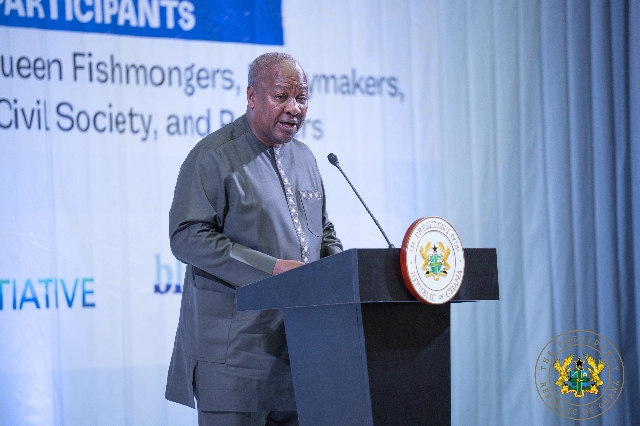 President John Mahama addresses fisher chiefs and queens
President John Mahama addresses fisher chiefs and queens
The government has initiated steps to formally integrate traditional chief fishermen and queen fishmongers into the country’s fisheries co-management structures.
President John Dramani Mahama announced the initiative on Friday, November 21, 2025, during the National Chief Fisherman and Queen Fishmonger Conference, describing it as a major shift in how fisheries governance will operate in the years ahead. He said the decision bridged traditional authority with modern regulation, recognising the enduring leadership role community figures have long played in sustaining the sector.
“No reform will succeed without your leadership,” President Mahama told the gathering.
He noted that chief fishermen and queen fishmongers had historically upheld discipline within coastal communities by allocating landing spaces, enforcing non-fishing days, mediating disputes, and ensuring order at landing sites and markets. Although market changes and reduced institutional support have weakened their influence in recent years, he emphasised that their authority and legitimacy remained strong.
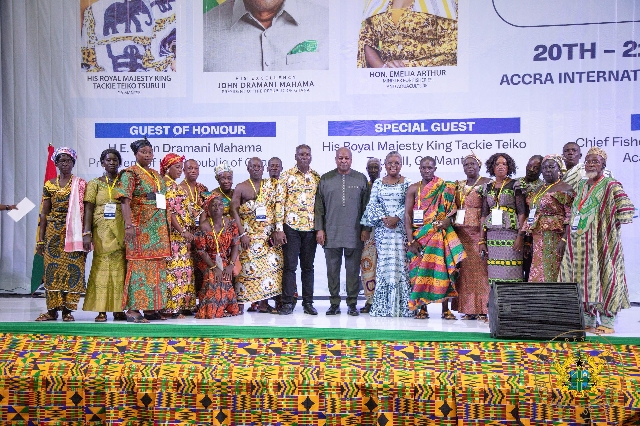
Mahama pledged that his administration will restore, respect and formalise the roles of fisher leadership within a new fisheries governance framework.
As part of the reforms, the president announced directives to strengthen traditional leadership structures. Chief fishermen and queen fishmongers will be formally represented in all fisheries co-management bodies, marking the first step toward institutionalising their involvement.
He added that traditional councils and district assemblies will receive support to formalise and enforce community bylaws on non-fishing days, restricted fishing gear and local surveillance. The aim, he said, was to elevate existing customary rules into fully enforceable regulations.
Government will also establish direct reporting lines to enhance community-based surveillance networks, enabling quicker detection of illegal fishing activities.
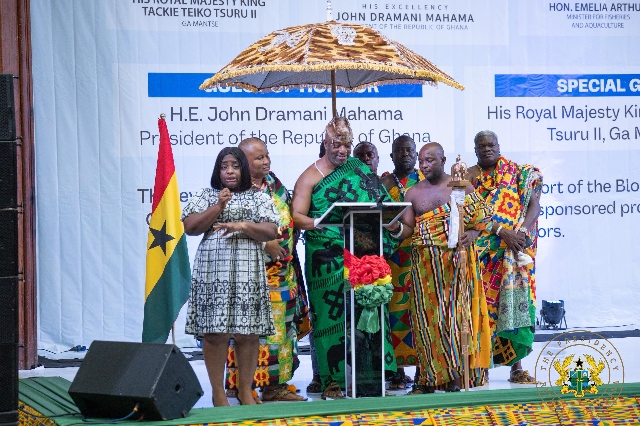
To further empower traditional leaders, Mahama said the fisher leadership would undergo structured training at the Arnaburg Fisheries College in fisheries law, compliance and enforcement, dispute resolution, and financial management.
The president also highlighted the integration of traditional ecological knowledge into resource assessment, coastal planning and broader coastal resource management. This, he noted, informed the appointment of Andrew Wilson as International Advisor on Indigenous Knowledge and Traditional Practices.
“The future of Ghana’s fisheries depends on what we commit to today,” Mahama said, urging chief fishermen and queen fishmongers to lead community education, enforce discipline and promote responsible fishing practices.
Source: classfmonline.com/Pearl Ollennu
Trending News
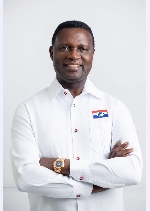
Adutwum promises Jubilee House welfare office to support NPP grassroots
17:29
Labone SHS receives 3,000 mono desks to address shortages, MoE confirms
13:13
Police arrest man, 54, at Kokrobite for murder of his 13-year-old daughter
10:14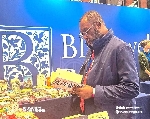
NAPO admits NPP’s failure to listen led to 2024 election defeat
02:22
Family announce one-off funeral for late Nana Konadu Agyemang -Rawlings
03:41
Gender Minister launches 2025 '16 Days of Activism” campaign, outlines bold actions against GBV
15:06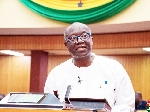
GRA scandal: Court adjourns case against Ofori-Atta, seven others in SML
13:04
New presidential jets will cost less than Akufo-Addo’s rentals — Deputy Finance Minister
09:23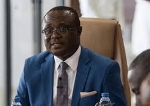
NPP executives abroad petition party for approval of proxy voting in presidential primary
02:13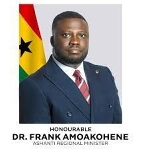
Ashanti Regional Minister demands retraction over “baseless” illegal mining allegation
03:29



